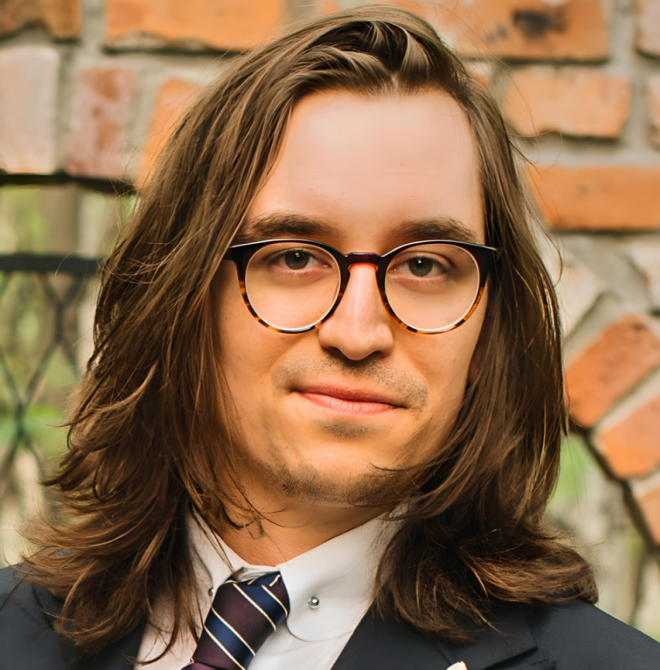| Małgorzata Kłoskowicz, PhD |
Łukasz Pieszczek, PhD from the Faculty of Science and Technology of the University of Silesia in Katowice received the award of the Committee of Analytical Chemistry of the Polish Academy of Sciences for his PhD thesis, in which he developed the principles of metrology and chemometrics in the field of chemical measurements. The Committee of Analytical Chemistry appreciated his fresh perspective on imaging techniques, which can be used, among others, in medicine, agribusiness and the waste processing industry.
The subject of the doctoral dissertation by Łukasz Pieszczek was the development of computational techniques that allow the use of one of the instrumental methods – hyperspectral imaging. The data generated during measurement is complex and can be interpreted as an image or spectroscopic spectrum. The award winner proposed several new ways of processing this data, which will allow for even wider practical applications of the method he is interested in.
“I am very glad that this work was appreciated by the Committee of Analytical Chemistry of the Polish Academy of Sciences. This is an immense distinction for me, especially since the topic is related to data processing. Chemists, although still mainly associated with working in laboratories, are increasingly dealing with complex data systems. We are interested in interdisciplinary topics that combine chemistry with mathematics, physics, biology and computer science and have interesting practical applications”, says the scientist. He adds that hyperspectral imaging, which he is interested in, will be perfect for medicine, recycling and even, which may be a bit surprising, agribusiness.
The techniques developed by Łukasz Pieszczek, PhD were initially used in the space and aviation industries to scan the Earth and identify objects located on its surface. This explains the high cost of the equipment and, consequently, its limited use in commercial laboratories.
“Currently, there are only a few centres in Poland that have advanced equipment that allows for the collection of data we are interested in, and one of them is the University of Silesia. In my opinion, however, in the coming years we can expect an increase in interest in this method, which will probably lead to a reduction in the production costs of devices such as hyperspectral cameras. The number of specialists able to process and interpret data collected in this way will also increase”, says the scientist.
One of the areas of practical application of hyperspectral imaging is medicine.
“Thanks to hyperspectral cameras, we can, for example, immediately ‘scan’ the entire surface of the patient’s skin and examine all skin lesions, including those that are not visible to the naked eye. This means a more precise diagnosis”, explains Łukasz Pieszczek, PhD.
Hyperspectral cameras connected to drones can also scan fields where various cereals have been sown or where vegetables or fruits are grown. Thanks to this method, it will be possible to determine at what point the crops have reached the highest nutritional value, and this, in turn, will be a signal to start harvesting. Agribusiness will benefit from this.
Finally, it is also worth mentioning recycling.
“Let’s focus on plastics. For their processing to be effective, they must be sorted. It’s a bit as if we had many smaller boxes in the yellow containers we already know, where different types of polymers would be collected separately”, explains the scientist. As a result, he adds, a given product can be used many times without losing its original physicochemical properties. Hyperspectral cameras solve this problem because they provide data that allows us to quickly identify the chemical composition of a specific waste. Such solutions are already used, for example, in the Netherlands.
“These are just a few examples of the practical application of the techniques I develop. I am sure that their potential will lead to increased interest in the area of commercial applications. We can already observe such a trend abroad, and it will be similar in our country”, sums up the researcher.
Scientific research of Łukasz Pieszczek, PhD was conducted in the team of Prof. Michał Daszykowski, Vice-Rector for Research and Finance of the University of Silesia, who acted as the supervisor of the awarded PhD thesis.
Article ‘New solutions for medicine, agribusiness and the waste processing industry’ was published in the February issue of University of Silesia Magazine No. 5 (315).
Łukasz Pieszczek, PhD | private archive






